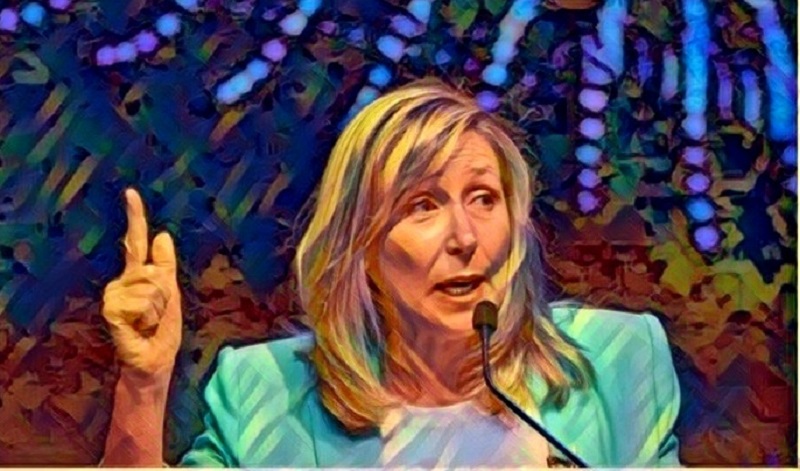
When politics is observed only through the movements of its superstructure, the risk of making a mistake is always just there, around the corner. The danger is, always, to establish a mechanical correspondence between what happens in that field of institutions and parties, and the movements on the level of ideas and the relations of forces between classes.
Some of this could be happening in Argentina, for example, between the unproven identity between electoral results and acceptance of greater adjustment plans, which must still go through reality tests, whose results are not written in advance. The Jujuy rebellion was there a few months ago to anticipate it, or are there today the conflicts that are warning that there is something that is not resolved, at a time when an exchange rate run is intensifying based on an already very high inflation and a delicate social situation . They are the previews of the new fights that are to come.
But if you had to go back in time to choose a date that explains other of the many mismatches of this organic crisis that is taking place – that of the friction between Peronism and its progressive electoral base -, it would probably be necessary to go back to July 2, 2022, with the aim of recapitulating one of the bifurcations of history that explains some of the disenchantments of many with the current scene. When the history of the extinct Frente de Todos is rewritten in the future, a turning point will possibly be found on that day. On that occasion, Cristina Kirchner gave a speech in Ensenada, without knowing that while she was speaking, the country was already on fire. Martín Guzmán had resigned from the Ministry of Economy through an explosive tweet.
The change that took place that day was not only temporary. The weeks of political disorder and economic chaos that began at that time – although they took place much earlier – put Kirchnerism before the test of contrasting in reality the coherence between its sayings and its actions. Until then, in the discourse of the political current referenced in the vice president, those responsible for the Government’s poor results were Alberto Fernández and his minister, Martín Guzmán, who were questioned for carrying out adjustment plans. However, at that critical hour, Kirchnerism demonstrated that after having pointed to the left, it was turning to the right. The story is known: after a brief interregnum by Silvina Batakis, the official Peronism closed ranks to enthrone Sergio Massa not only as superministro of Economy, but as a president of the nation in fact, leaving Alberto Fernández in a decorative role. Since then, the man from Tigre has enjoyed a margin of maneuver that his predecessor envies: he has the completely uncritical support of Cristina Fernández de Kirchner, despite applying the IMF’s adjustment plans in an even more draconian way. .
The consequences of these realignments, as we said, go beyond the situation, and have implications that affect the reconfiguration of the political regime., for which we will resort to an analogy, as always, imperfect. In recent years, certain currents of North American Political Science have been using the concept of asymmetric polarization to refer to a specificity of his country: a sharpened confrontation between the Democratic Party and the Republican Party, with the particularity that the latter has turned strongly to the right (with Donald Trump at the head), without this having a correspondence in a equivalent turn to the left of the first, which has remained in the center.
Leaving aside the distance, some of this conceptual scheme can be used to think about current Argentina, in which the old bi-coalitional political regime of the crack between macrismo and kirchnerismo is dying, to give rise to something new that has not yet been born, and in that transition it offers aberrant phenomena. The Argentine right has been radicalizing – with the emergence of Javier Milei and the triumph of the right wing of Together for Change within that space -, while in Peronism it has been losing relative weight – and gradually abandoning its old flags- the Kirchnerist center-leftwhich has validated a candidacy like that of Sergio Massa.
But the movements of the superstructure, as we said, do not mechanically express what happens at the base of society. Not only because of the confusing and contradictory nature of the emerging phenomenon -Javier Milei- but also because In this turn to the right, Peronism finds friction between representatives and represented: the appeal to vote for Sergio Massa is a hotbed of debates with voters who are called to vote for someone who does not represent the values that had been proposed to them from the speech for years: a national and popular story, a better distribution of the income, a human rights policy or an empowerment of the women’s movement. All flags that clash with someone who, until a few years ago, was considered a traitor. The need to enable participation in the PASO for Juan Grabois (who is now calling for Massa to vote) was already an expression of the tensions that arise in these movements and the need to try to gradually manage the turn to the right, with escape routes.
As if that were not enough, in recent days Sergio Massa has called for a Government of national unity not only to repressive right-wingers such as the governor of Jujuy Gerardo Morales, but even to members of the PRO or Javier Milei’s La Libertad Avanza.
As if this were not enough, a explicit neomenemist obscenity scandal, that of Martín Insaurralde’s luxurious trip to Europe, ended up being a provocation to any minimally progressive value: it is the contrast between 40.1% poverty and increasing, versus the ostentatious life of one of Axel Kicillof’s top officials . All this, also seasoned with the revelations about the role of Peronism that put together the lists for the libertarians in different districts.
In these fissures of a regime that turns to the right, and particularly in a Peronism that turns towards a neo-Menemism with Kirchnerist support without having culturally defeated the sectors of its own social base that have progressive values, the voice of Myriam Bregman. The possibility of a debate with a massive audience (a possibility that did not exist in the PASO) was enough for the potential of the left’s ideas in the face of the crisis to begin to be demonstrated.
While the three main candidates call to continue under the heel of the IMF at a time when poverty, inflation and new currency runs are skyrocketing. that threaten an even greater disaster, or promote spots for the looting of natural resources, His role in the presidential debate has boosted the morale of millions who were waiting for someone to say what needed to be said. Because against the full-time promoters of resignation, the gigantic repercussion of their participation showed that it is not only the Left Front, but that there are millions of people who were waiting for a clear voice, without speculation or pettiness, to confront the right now. adjustment policies. That they do not feel called upon to vote with enthusiasm for a path that has led us to the current situation.
In the remaining days, they will once again summon you to lower your flags and your principles in the name of the lesser evil. But they don’t want to silence you. Vote with convictions, because The battle has just begun and plans for more adjustment, devaluation and structural reforms will be the order of the day. Proudly raising our flags is the best preparation for what is to come. A strong political statement opens the way to resistance that will have to be redoubled, and to a perspective to turn history around.
Source: www.laizquierdadiario.com

